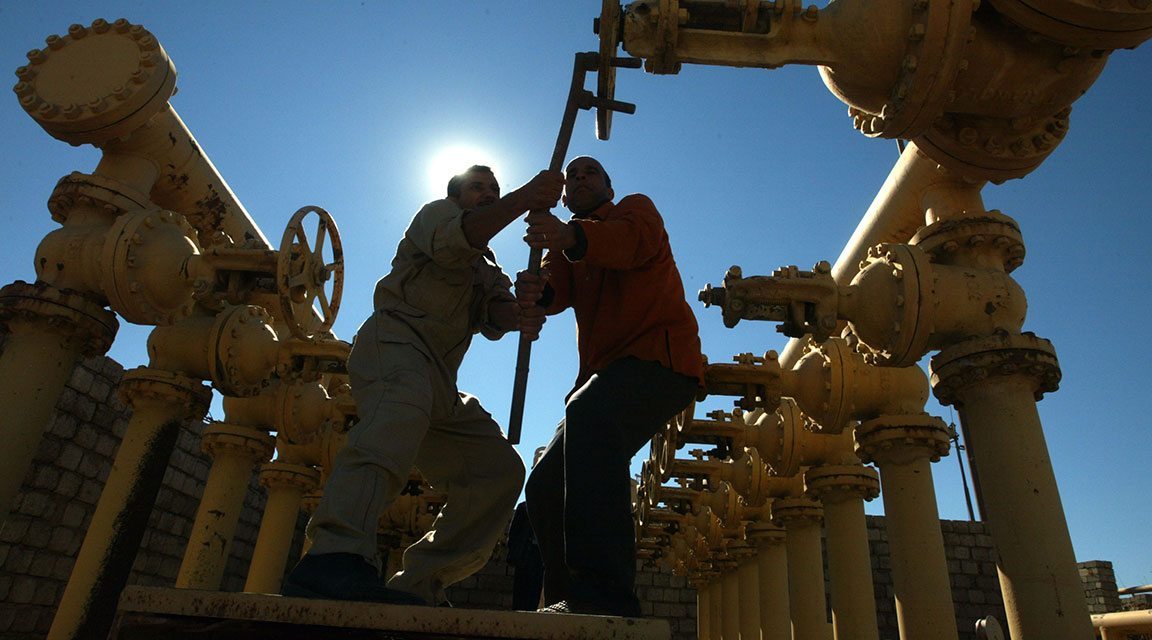

Adviser to Iraqs parliament says existing deals with international oil companies should be reviewed
Iraq needs to dramatically alter existing contracts with international oil companies (IOCs) according to a senior adviser to the federal parliament of Iraqs committee for energy policy and economic reform.
The government needs to review its contracts with IOCs like BP and Lukoil. These contracts need to be changed significantly to adapt to a new reality, Luay al-Khatteeb told MEED in an interview.
The Iraqi government needs to sit down with companies and explain that we are facing a new reality oil market fundamentals have change dramatically in recent years, and thus traditional oil producers will face long years of low oil prices. The Iraqi government should forget about relying on oil revenues and focus on diversification. This is a wakeup call.
As well as advising Iraqs committee for energy policy Luay al-Khatteeb is the founder and director of the Iraq Energy Institute.
Al-Khateeb says Iraq needs to agree on a new contract model that will give companies an increased incentive to commit commercially and link upstream projects to the implementation of large infrastructure schemes.
The contracts that they signed front loaded cost and were based on high-oil-price scenarios. They did not consider anything below $50, says Luay.
The financial challenge facing Iraq under low oil price scenario have tested the durability of current oil fiscal regime signed by the federal government. They proved to be not the investment model with a balanced risk sharing that Iraqis aspired for.
Iraqs existing contracts are known as Technical Service Contracts (TSCs). Under these agreements the Iraqi state pays a flat rate to oil companies for every barrel of oil produced.
According to Luay these contracts have become increasingly burdensome for the government as oil prices have declined.
Under the current contracts the IOCs cost-recovered around $12bn during the early years not counting the cost of operators in Kurdistan region, says Luay al-Khatteeb.
This was manageable when Iraq had oil revenues of revenues of over $100bn around 12 per cent. Now oil prices are lower and revenues have been reduced to around 30 billion, including revenues from Kurdistan region. This means that IOCs are taking 40-50 per cent of all countrys oil revenues.
To secure operational sustainability, any contractual revision should be fair to welcome re-adjustments that factor oil market volatility scenarios and risk sharing, in balance, between IOCs and host government. Commercial upside to be offered to IOCs in return for flexible repayment terms as well as commitment to invest in midstream and downstream developments.
The comments from Al-Khatteeb come weeks after Iraqi oil minister Adel Abdul Mahdi made a statement says his ministry was, discussing reducing financial spending by foreign companies.
Iraq is currently in the midst of a financial crisis driven by extra spending on the ongoing war against the Islamic State in Iraq and Syria (Isis) and the collapse in oil prices, which have fallen by two thirds since June 2014
Iraq is OPECs second-largest producer and has TSCs with companies including UK-based BP, Anglo-Dutch Shell, Italys Eni, US-based Exxon Mobil, and Russias Lukoil.
You might also like...

Rainmaking in the world economy
19 April 2024

Oman receives Madha industrial city tender prices
19 April 2024

Neom seeks to raise funds in $1.3bn sukuk sale
19 April 2024

Saudi firm advances Neutral Zone real estate plans
19 April 2024
A MEED Subscription...
Subscribe or upgrade your current MEED.com package to support your strategic planning with the MENA region’s best source of business information. Proceed to our online shop below to find out more about the features in each package.





